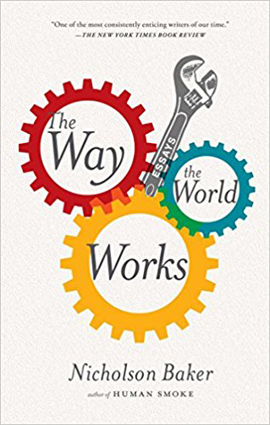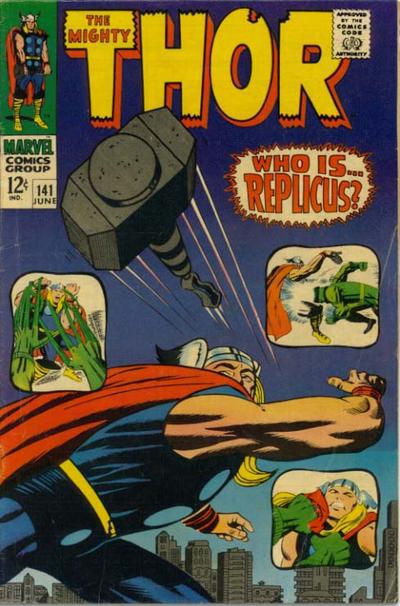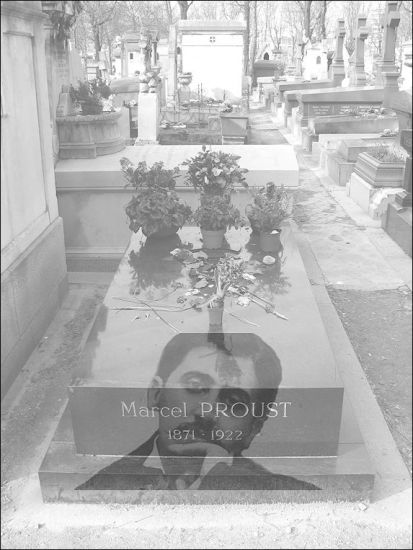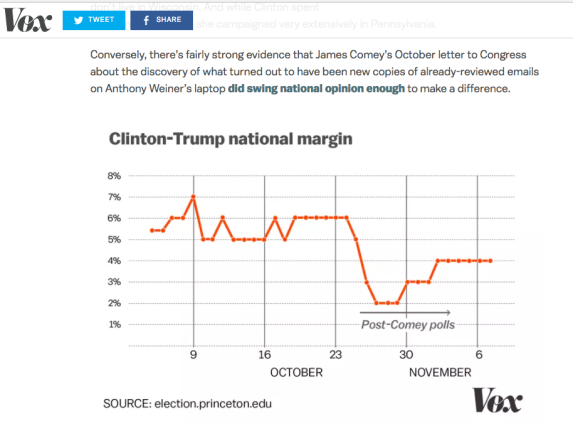
I had never heard of Nicholson Baker until fairly recently. Then I came across a positive reference to him in an article I read, and though the description of him and his writing was fairly brief and so only gave me a vague impression of what he’s about, that vague impression was positive enough that I decided to check out some of his stuff for myself. So I picked up Human Smoke and The Way the World Works. I read Human Smoke first and wrote about it recently. It didn’t blow me away but I liked it, and so looked forward to The Way the World Works.
Though both works are nonfiction (he also writes fiction), they differ considerably. Human Smoke is all one unified book; The Way the World Works is a collection of 34 separate essays. Human Smoke is about World War II; The Way the World Works is—not surprisingly, since it’s 34 different pieces—about a myriad of topics. Human Smoke is written in a highly unconventional style for a history book—it’s basically a recitation of a long list of facts with no connective material, commentary, conclusions, etc.; The Way the World Works, stylistically at least, isn’t particularly unconventional. In Human Smoke, Baker stays in the background and lets the facts he has accumulated speak for themselves; The Way the World Works is a highly personal work, written in the first person, with a lot of autobiographical material.
The Way the World Works is divided into six sections (though the last section, Last Essay, has just one short piece). The most autobiographical section is the first—Life. I don’t have enough to say to warrant writing about each of the nine essays within this section; at least most of what I’ll say is really more about all of them collectively.
I have mixed feelings about this section, and I sensed those feelings changing as I read, and then continuing to change as I looked back on the material after I had finished reading it.
It feels like mostly stream-of-consciousness stuff. It’s kind of like if you were lying down on the couch and your analyst said something like, “I want you to relax and let your mind wander back over your past, and tell me whatever you happen to think of.”
One can imagine a writer doing that kind of brainstorming as a first step to generate plenty of material, and then narrowing it down to just the most important stuff, or the stuff that best fit some theme he’d come up with for the book, or the stuff about which he sensed he had the most interesting things to say, etc. But these pieces don’t seem to have much of that filtering. I mean, that may all be an illusion, and in fact every topic, every reminiscence, in this section may have been chosen very carefully for a specific reason, but it sure feels like, “Hey, this is just whatever popped into my head in reflecting on my past; make of it what you will.”
So does that mean that it’s all just a lot of pointless minutiae? Well, I suppose a part of me reacted to it that way to some extent; I certainly didn’t love this section. But from another angle it is strangely interesting and thought-provoking.
It helps that, one, Baker is an excellent descriptive writer, very observant and skilled at picking out the odd or telling little aspects of something that others might have missed or might not be able to convey felicitously. And, two, it’s mercifully short. A little of this kind of material goes a long way.
I remember reading of a much talked about book—or actually I think it was a series of books—that came out a few years ago wherein the author (a Norwegian fellow as I recall) describes virtually everything he says, does, or thinks from day to day. It sounds like some Warholian thing that would take just about as long to read as to have lived through. Well, this isn’t like that. It’s true that Baker doesn’t cherry pick just (what would conventionally be regarded as) the most important experiences to relate, but not in the sense that he instead includes everything in his life. It’s more like he has taken a random 1%, or fraction of 1%, of his life to include.
Like I say, I have mixed feelings. It puts me in mind of shooting the shit with some college buddy in the middle of the night, or lying alongside a significant other, and the meandering conversation gives rise to stream-of-consciousness reminiscences. “Hey, I just thought of something that happened to me back when I was a kid. I don’t why, but for some reason it seems to have stayed with me…” That kind of thing can be somewhat interesting. It’s not like I’m inclined in such a situation to impatiently tell the person, “Yeah, but what’s the point? Who cares? Why share that if you can’t articulate a reason you did so?” That would just seem harsh. It’s like this person is letting you into their world, into their head, and even if not every story taken on its own is all that scintillating, it can be interesting in its way.
Or think of this material as intended for a time capsule. If people a thousand years from now wanted to know what life was like in the 20th and 21st century, they wouldn’t just want to know the “highlights”; presumably the “minutiae” would be of considerable interest to them as well. To some extent it should be interesting to us now. I mean, a life isn’t constructed out of “highlights” alone. If you find people interesting—as I mostly do—then the countless little life details that you mostly don’t stop to think about have their place too.
Another thought I had reading this section is that it might work better for me in video form. I’ve made a good number of films over the years—as a hobbyist, and then professionally or at least semi-professionally—and the bulk of them have been what’s called “personal history” films, which are biographical films about “real people” that tend to be built largely out of interviews. Basically you get the subject—most often an elderly person—to tell the story of their life on camera, and then you augment it with various other material.
I’ve found that I’m a lot less allergic to “talking heads” in these films than the vast majority of filmmakers and viewers seem to be. I mean, in almost all films of this type (or documentaries, etc.), people strain to have the interviewee(s) on screen as little as possible, even if they have very little other material and so have to keep showing the same clips over and over while the person is speaking. But I actually like to see who I’m listening to. Not 100% of the time—I like to cut to other visuals too—but most of the time I gain a greater understanding, and stay more interested, if I can watch an interviewee’s facial expressions, body language, etc. I feel more connection with them.
Baker is a very skilled writer, and he conveys a lot through words alone, but I’d kind of like to have been watching him say all these things—seeing when he leans forward in his chair, when his speaking pace increases, when he looks uncomfortable talking about something, when he gets a little teary-eyed talking about something emotional, etc.
Anyway, I’ve said a lot more about this section than I intended, so now I’ll move on to Reading, a section that contains nine pieces.
Most of the early pieces in this section are autobiographical like those in Life, focusing on Baker’s reading experiences. They range from the conventional (memories of learning to love books as a result of his mother reading to him at night, his penchant for copying out favorite phrases from books and compiling them) to the bizarre (his hobby of reading and taking note of whatever specialized, incomprehensible gobbledygook he observes written on airplane wings).
Then the subject matter seems to broaden, and the pieces become slightly to significantly less biographical. Though I’d moderately enjoyed the book up to this point, I found myself a bit more drawn in by these next pieces. The quirky attachment to minutiae from his life is not without its appeal, but as I say, a little of that goes a long way. It feels like in some of these other pieces he’s exercising his mind a little more, allowing it to work up to a gallop.
There’s a nice essay on how best to represent thought in writing. Should you put it into words, even though thoughts are not words and it’s probably fairly infrequent that people have conscious internal dialogues with actual words when they think? If you do, should you use quotation marks? He notes that that’s fallen increasingly out of favor in recent years, that nowadays thinking/speaking to oneself is almost always left unpunctuated in that sense.
I think a lot of people assume—and I find myself thinking this sometimes as well when I’m reading—that you can convey more in a movie than a book, since there’s so much you can do with video and audio that isn’t available to a writer. (Indeed, I was making a point like that a moment ago, about learning about his life through text versus through video.) However, he notes that there are respects in which just the opposite is true, such as concerning this internal world of thought and emotion within our heads. A novelist can simply (or not so simply) tell you what is going on inside a character when he or she chooses to. A filmmaker must try to enable you to infer it through the character’s behavior, putting a viewer in the position of someone trying to decipher a mime show.
There’s a piece on a strange man who took on the unthinkable task of reading the entire Oxford English Dictionary (“twenty heavy volumes of tri-columnated type, all of it twinkling and squirming with abbreviations, small caps, foreign derivations, and archaic spellings”) from cover to cover, and a lovely and moving piece Baker wrote upon the death of John Updike.
Also in this section we learn what he regards as “the three great contributions the United States has made to world civilization”: The New Yorker, Some Like it Hot, and the iPhone. (I really don’t know what my three would be, but it certainly wouldn’t be those. I have a more favorable than not impression of The New Yorker, though I don’t read it regularly, I’ve never seen Some Like it Hot, and I have only a limited interest in all the latest 21st century gadgets like these fancy new phones.)
Ironically, as the pieces became less autobiographical I found myself feeling closer to Baker, feeling like I was getting to know him better.
David Foster Wallace, as I’ve written about in multiple of these pieces, is a writer with whom I feel a rare connection. I especially feel in tune with him when I read his nonfiction essays. There’s a bit of overlap between Wallace and Baker—the idiosyncratic subjects they choose, the obvious intellect, the basic humaneness, the insightfulness—but on the whole Baker is a significantly less challenging read. Not because he’s necessarily a better writer, or necessarily writing about things that are easier to capture in simpler language, but mostly just as a matter of style. Baker’s prose flows very well for me; with Wallace I have to work a little harder to grasp and appreciate the gems.
The third section of The Way the World Works is Libraries and Newspapers, which has about an equal number of pieces about each.
Baker has been something of an activist about stopping libraries from dumping the bulk of their books. Some “weeding” like that is unavoidable, which he accepts, because with all the new books that are published, and the turnover in what books library goers seek, it makes no sense for a library to, say, keep all 20 or all 50 copies that it initially obtained of some novel that was all the rage a decade or two ago but that an average of one person a year checks out now. No matter how much space a library has, that space is finite, so there will always be necessary choices of what to keep and what not to keep.
But as he points out, libraries should adopt the attitude that an increase in the number of books worth having is actually a welcome sign of health, and therefore their first option whenever possible should be to expand their available space so as to accommodate more books. So even if they can’t have every book they’d ideally want to on their shelves, they should strive to come as close to that ideal as they can.
Instead what he sees is libraries dumping their books willy nilly, as they lessen instead of increase the space available to house more books, for aesthetic and economic reasons. The excuse often offered is that there is less need for physical books with so many books now being available in digital form. But he is distressed that there are so many old books passing out of existence. These are books that admittedly are almost all obscure and rarely sought, but they should still be preserved because they’re a part of our cultural history and because, yes, once in a blue moon someone will stumble upon one of these books at their library and realize it’s exactly what they want or need.
While he’s certainly not opposed to making books (and newspapers) available in digital form, he contends that this should be in addition to rather than instead of their being available in conventional physical form.
We understand why fragile old flags and old presidential letters are valuable as things—we don’t believe that taking a snapshot of Plymouth Rock amounts to a “reformatting” of Plymouth Rock, and after some long and painful decades of urban renewal we’re doing better with old mills and train stations. There are very nice postcards of Whistler’s painting of a woman in a white dress for sale in museum giftshops, but Whistler’s woman in white is still on the wall.
If anything newspapers are dumped even more readily than books. Even the newspaper publishers themselves typically don’t keep a complete history of their own papers. The New York Times, for instance, does not.
In one of the pieces he describes reading through old issues of The New York Times from 1951. (That the Times doesn’t keep a copy of every issue in its history of course doesn’t mean that no old issues exist some place or other.) And while this doesn’t really address the print copy versus microfilm copy versus digital copy debate, it does sound surprisingly fascinating.
It has been said that newspapers are the first rough draft of history. A historical account of a certain era will hopefully be more accurate than the way the events in question were reported when they were news, and it also will cherry-pick what is “important” and leave out the day-to-day minutiae. Looking at an old newspaper may be mildly interesting as an exercise in seeing what it “got wrong” when the evidence available to its journalists was limited and they were trying to beat a deadline, but I’d say it’s even more interesting as a way of seeing what later historians ignored as not being significant enough to “make the cut” to include as part of history.
But getting back to the physical versus digital copy thing, how much does it really matter if the original, physical newspapers pass out of existence? When all or almost all American libraries—including the New York Public Library and the Library of Congress, disposed of their accumulated copies of Pulitzer’s New York World—that left the British Library with maybe the largest remaining collection. But then they too decided they could keep it no longer. Baker raised enough money—about $150,000—to pay to have all they had shipped to him and then donated the papers to Duke University for storage, so he’s certainly willing to put his money where his mouth is. But is he right?
He contends that given that a million or more people a day held the physical New York World in their hands and read it, something important is lost from our cultural continuity if it becomes impossible for anyone ever again to experience that. It matters not just that we know what was written in the World and can read it if we choose to, but that we can as closely as possible duplicate the experience of how it was back then, that we can in a sense enter into the lifestyle that existed when getting the huge Sunday World was a big deal, and you could pass out sections to your family and then settle into your favorite easy chair to read about the latest doings of Teddy Roosevelt and such.
I’m inclined to agree, but not to put quite as high a value on such things as he does. I also think the gap between having something like that in its original form and in some modern form (e.g., a physical newspaper you hold in your hands versus a digitized version of the contents of that newspaper), while not completely unimportant, is far, far smaller a gap than that between having the modern form of it versus having nothing.
I’m reminded, for instance, of the loss of so much of the programming of the early years of television. I’ve read that back in the ’40s and ’50s, and to some extent even after that, few people thought television shows had much cultural and historical importance, so the film and video of those shows was routinely discarded or reused. Even many of what we would now consider classic TV shows are gone forever in that sense. I think that’s a far greater loss than being limited to a digital version of something that originally existed in a different form.
But like I say, I’m on his side to an extent. Certainly retaining the original version of anything—book, newspaper, painting, building, what have you—is of some value. And a part of me prefers that somebody somewhere in fact be keeping “everything” like that (and I probably always vaguely assumed, before I read more about it and thought more about it, that that in fact was happening). But the reality is that not everything can be preserved. I’m sure we could preserve more than we do, and that we could make better choices about what to keep (I assume now, like so many things, those choices are largely a function of what happens to be profitable for some entity or other), but some stuff will have to be forsaken.
This section also includes an interesting piece on tabloids in the 1840s, which were surprisingly raunchy. He notes that New York newspapers like the Whip, the Flash, the Rake, and the Libertine were more like, say, modern day Screw magazine rather than The New York Times. These were publications where a reader could, for instance, learn not only the location of the various brothels in the city, but also how to conduct oneself in them so as to not come across as a rube and be ripped off.
Next up are the six essays of the section entitled Technology. These pieces are mostly about the kind of modern computer technological wonders you’d expect, though the first piece is about, of all things, his experiences with Venetian gondolas.
One might think from his attachment to conventional books and newspapers and such over their digital equivalents that he has a curmudgeonly disdain for newfangled computer gizmos that arose after he came of age, but that’s really not the case. He’s selective in his likes and dislikes, but on the whole he has considerably more favorable than unfavorable things to say about 21st century technology. (After all, he did single out the iPhone as one of the three greatest American contributions to the world.)
He’s for the most part pro-Wikipedia and pro-Google. He has his doubts about the Kindle, but in the end decides that e-readers are not all bad and have their place. And his brief piece on Steve Jobs is, if anything, disturbingly hagiographic. He’s no Luddite.
The fifth section, War, has only three essays, but those include the two longest in the book.
In Why I’m a Pacifist, though Baker talks some about his own personal journey and his own philosophy (he even confesses that at one point in his development he was a Young Republican), he spends the bulk of the essay relating a certain argument that many pacifists made at the time concerning World War II, contending that even if you don’t ultimately agree with its conclusion, it’s an argument that deserves to be taken seriously.
World War II, of course, is the “hard” case for pacifists, the war that’s most often cited as a self-evident refutation of pacifism.
Baker identifies pacifists, at least the ones he’s talking about here (and the type of pacifist he is, I believe) as opposing and refusing to fight in all wars, but not necessarily being nonviolent on an individual level. That is, if you went up and slapped one, rather than turn the other cheek he might well slap you back, but he’s not going to join the army and kill people in a war.
These are not folks, then, who embrace—as Gandhi would put it—“nonviolence as a creed.” They do not have a moral, philosophical, perhaps religious, commitment to nonviolence from which the opposition to war is then derived.
Presumably, since their opposition to war doesn’t flow from a principled or deontological commitment to nonviolence like that, it is consequentialist in nature, which is to say that they believe as an empirical matter that there is no war for which if you did a cost-benefit analysis the overall consequences of going to war would be better than not doing so.
Anyway, the argument concerning World War II that he presents is that in effect Hitler and his people were holding millions of Jews and other innocents hostage, and so the Allies should have approached it as a hostage negotiation situation. They should have negotiated, tried to show Hitler that there was some alternative open to him that might not give him everything he wanted but would be attractive enough to him that in exchange he wouldn’t slaughter his “hostages.” Jews and others who left Europe as freed hostages could have then been resettled around the world in other countries. (By the way, aside from the other objections that people would naturally raise to this plan, that last part in itself would have been a deal breaker, since regardless of their rhetoric, the United States and most or all of the other countries who opposed Hitler were not open to accepting some massive influx of Jewish immigrants.)
Instead, so the argument goes, the Allies refused to negotiate. They insisted instead on unconditional surrender. They took the position that the best approach was an all-out war that would so devastate Germany and those allied with Germany that the people in those countries would rise up in desperation against the Nazis, and that by promising maximum vengeance the Allies would make the Nazis think twice about their more bestial plans since they would know they would have to answer for them if and when they lost the war.
And they were proven horribly wrong on both counts. Inflicting horrific suffering on civilians didn’t cause them to switch sides and oppose their government that had started the war, and the Nazis were not intimidated into moderating their behavior by the threat of postwar punishment. Instead they massacred millions of their hostages.
So it was a hostage situation gone terribly wrong, a hostage situation where the cops went in with guns blazing, resulting in huge casualties to the cops and the hostage takers alike, and provoking the killing of the hostages. It would have been better, these pacifists contend, to have at least tried to avoid this outcome through negotiating.
It’s a very counterintuitive argument for most people, because it is so deeply engrained in us that our enemies (whomever our enemies happen to be at the moment) only understand force, that anything else will be interpreted as and exploited as weakness. You don’t negotiate with monsters; you kill them. (Heck, anyone who plays video games knows that.)
It’s also worth noting how limited this argument is. It’s really not advocating a pacifist response at all. It’s not like Gandhi saying that war should be countered with loving firmness and nonviolence. The idea here is that Hitler—or at least enough of the people around him—at some point had to realize they weren’t going to be able to win this war in the end, not with the United States on the other side especially, and thus would have been open to some way out other than their total annihilation. And even if that wasn’t the case, he notes that Hitler’s health was deteriorating rapidly, so even slowing things down for a while so negotiations could take place would have brought the end of his rule closer, with almost certainly a softening to German rule after that (at least softer than the Holocaust). The Nazis would know that if negotiations failed and total war was resumed, they’d be screwed.
So it’s not only not a pacifist argument, it presupposes overpowering military might and the willingness to use it. It just says that there were ways to hold off on a massive military onslaught and to negotiate to where maybe it wouldn’t have to take place at all, meaning the avoidance of the almost unimaginable death and destruction of the last few years of World War II.
I’m under no illusions—and I suspect the same is true of Baker—that more than an infinitesimal number of people would be swayed by this argument, but I agree that it’s at least worth thinking about, and that it’s valuable to let people know that back then there were a significant number of people making this argument, though it has seemingly been written out of history.
We Don’t Know the Language We Don’t Know is Baker’s account of a recent (during the Obama era) antiwar rally in Washington.
Mostly he just recites what happened, quoting various of the speakers and such. But insofar as you can infer his opinion, not surprisingly he’s favorably disposed toward the rally.
What is perhaps surprising is that I consistently have mixed reactions to this kind of thing. Yes, broadly speaking I’m on the same side as the protestors. But at the same time I get a creepy feeling from events like this.
At one point Baker observes, “I suddenly felt the rising power of an outraged crowd. It has a different kind of persuasiveness than any verbal argument does.” Well, yeah, but that’s just it.
I’m about as antiwar as one can be. But I’m also very much anti-“different kinds of persuasiveness than verbal arguments.” (Sort of. It’s a lot more nuanced than that, but not something I’m going to go into in detail here.)
I’m a philosopher. I’m all about rationality and logic. I taught critical thinking, and being swayed by a mob is an example of the sort of thing I warned against in those classes.
I don’t just find mobs creepy and threatening when I disagree with whatever they’re espousing; I find mobs creepy and threatening in general.
So, I don’t know, a part of me says it’s great, I’m glad people are getting fired up about opposing wars. But then another part of me recognizes that somebody shouting slogans and making simplistic points with a bullhorn isn’t presenting a cogent argument that justifiably influences people toward the speaker’s position. I’m not saying it isn’t effective—mobs, and emotional appeals, and preaching to the converted and such can be very effective—but there’s a sense that it doesn’t deserve to be effective.
The third piece in this section is Painkiller Deathstreak, Baker’s account of his exploration of the world of video games, specifically those mega-popular ones that are extraordinarily detailed and elaborate and are all about killing bad guys (e.g., the Call of Duty franchise).
Alas, things in that world change so rapidly that I assume this essay from 2010 is already severely dated. Or at least readers who are up on these things would recognize it as such; I have almost no knowledge of these matters.
He seems to like these games more than not, though the grotesque violence of some turns him off. Some of his observations are interesting, but I can’t say this was one of my favorite of the book’s essays, I suppose because I mostly don’t care about video games.
I certainly have some experience with video games, but my tastes, or at least my experience, has mostly been with other types than these shoot ’em up war or crime-based video games. I’ve played a lot of Bloons over the years, and there are a few others I’ve gotten temporarily hooked on, but I’ve purposely avoided entering this world to a greater extent than that. That’s not because I look down my nose at video games, but if anything because I know how addictive they can be. I’ve almost certainly wasted more time than I should have on video games as it is; I don’t want them to be a bigger part of my life.
The final piece of the book, in its own section, is the four-page Mowing. Ostensibly about mowing the lawn, this interesting little reflective essay makes two main observations. The first is that there are times that it’s really, really appealing and comfortable to be in some routine situation that you understand fully (even if that’s in part an illusion), where there’s nothing you have to think about, nothing to be anxious about, nothing to be confused about, and no surprises lurking. A lazy Sunday morning with a loving and loved wife, coffee, the newspaper, and then maybe mowing the lawn, for instance. God’s in his Heaven and all’s right with the world.
But then there are other times you want to be uncertain, you want to not understand everything. That’s when you get to exercise your curiosity. He talks about this especially in the context of academic research.
Of…all the subjects I don’t know anything about, this one right here is the one I would like to pursue. Why? Because nobody else is, and because it happens to be here and it draws me. I will contribute most efficiently to the whole if I pursue this topic, knowing that it is obscure enough that nobody would be foolish enough to duplicate my efforts.
Some of the pieces in The Way the World Works didn’t do a lot for me, and even the ones I liked best are such that I wouldn’t rank them very close to, say, the wonderful title essay of David Foster Wallace’s A Supposedly Fun Thing I’ll Never Do Again, but I come away from this book liking Baker and appreciating his writing style and what he has to say. I would have no objection at all to spending some more time with him like this in the future.
Advertisements Share this:





